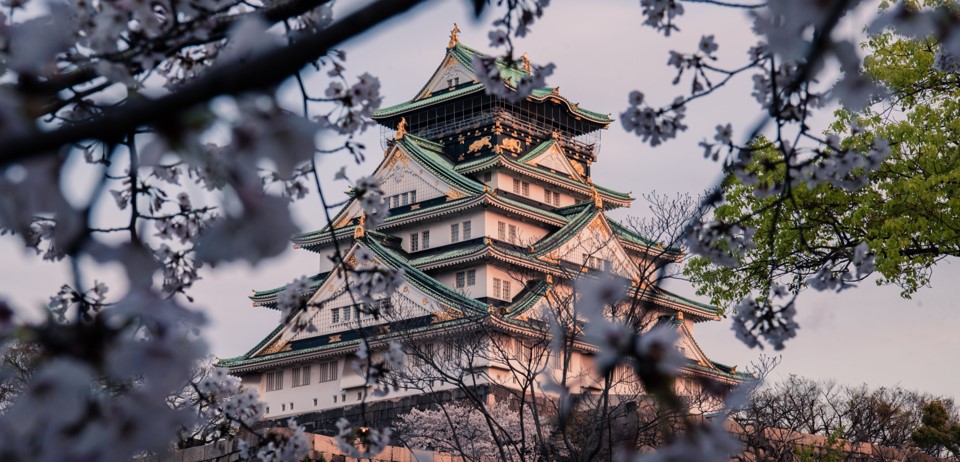As of 11th October 2022, Singaporeans are no longer required to test for COVID-19 on arrival, unless they are suspected of having COVID-19.
However, all returnees and entrants are required to provide either:

As of 11th October 2022, Singaporeans are no longer required to test for COVID-19 on arrival, unless they are suspected of having COVID-19.
However, all returnees and entrants are required to provide either:
Japan has taken measures on the visa exemption arrangements for short-term tourists from 68 countries/regions. The arrangements were suspended during the pandemic and now has resumed as of 11th October 2022.
Singaporeans are allowed to travel to Japan without a visa for up to 90 days.
Japan offers a variety of accommodation types in both Japanese and Western Styles. The rates can range from less than 2,000 yen per person to over 50,000 yen per person depending on the lodging type.
For a budget-friendly trip, hostels and dormitories present lodging and meals at a remarkable price. Japan Youth Hostel, which is associated with the International Youth Hostel Federation, hosts over 300 such establishments throughout Japan.
For a longer stay, it is best to rent an apartment, available from 40,000 yen per month. There are several companies in Japan which offer rental contracts for foreigners.
If you are looking for a luxurious stay, you can opt either for western-style hotels or ryokan (Japanese-style inn). It can range from 6,000 yen to 50,000 depending on the type of room.
Before commencing your journey to Japan, it is essential that you obtain travel insurance. This protection can provide coverage for medical and hospital bills, lost baggage, flight cancellations or delays, as well as any other potential emergencies which may arise unexpectedly during your travels.
Without this vital safeguard in place, you could be held personally accountable for footing all costs related to required medical treatment or similar services -- a risk no one should take when embarking on an adventure abroad.
Spring - March to May
Summer - June to August
Autumn - September to November
Winter - December to February
Type A (two flat parallel pins)
Type B (two flat parallel pins and a grounding pin)
Trains are the most popular way for intercity travel in Japan. Japan Railways (JR) conjoins numerous distinct rail systems to form one extensive network throughout the nation. It operates the famous shinkansen (bullet train) routes, with speeds up to 320 km/h.
Additionally, there is also a huge network of private railways, with each large city usually having at least one private train line that services it and the surrounding area. There are a couple of sleeper train services still in operation.
Major stations are sign-posted in English, and stops on long-haul trains are announced in English.
Tickets can be purchased from touch-screen vending machines in major train stations from JR’s in-house travel agency and can be found at major JR stations, or from travel agencies in Japan, available within train stations.
The Japan Rail Pass is a popular choice among travellers, giving you access to unlimited JR services for seven days, 14 days or 21 days at an amazing rate from approximately ¥33,700 (approximately SG$ 330).
Buses are an economical option compared to trains, as they often offer routes that the latter cannot. Japan provides an efficient and comprehensive system of long-distance bus routes that traverses the islands of Honshū, Shikoku, and Kyūshū.
Japan Railways provides a dependable service with the largest network of highway buses available, yet it is costlier compared to other options. Other less expensive operators that offer expansive networks include Willer Express.
If you are travelling into rural areas, it is recommended to rent a car or motorcycle for flexibility.
When renting a car in Japan, expect to begin at around ¥7000 per day for a compact vehicle. However, if you decide to rent for multiple days then the price will be reduced appropriately. Rental networks such as Nippon and Toyota offer vehicles with navigation systems that are available in English.
Renting a bike can be more complex than renting a car, particularly for extended trips. Rental 819 is one of the few businesses that make it easy to book online in English. On certain islands, you will even have the ability to rent scooters with an international license.
Health care in Japan is, generally speaking, provided free for Japanese citizens, expatriates, and foreigners. Medical treatment in Japan is provided through universal health care. This system is available to all citizens, as well as non-Japanese citizens staying in Japan for more than a year.
As a short-term tourist to Japan, you are expected to cover all medical costs at the moment or provide solid proof of your financial capability.
Japan Health Info suggests that travellers who don't have Japanese health insurance carry somewhere between 20,000 to 50,000 yen in case they need a medical consultation while visiting the country. The prices for further medical procedures can start at 500,000 yen.
Exploring foreign lands can be exhilarating, yet it is important to remember the possibility of risk. Therefore, investing in travel insurance for extra protection when journeying to Japan is an excellent way to give yourself a sense of security and peace of mind.
At Allianz Travel, we offer a range of travel insurance including selected Covid-19 related protection.
Be sure to explore our diverse insurance to find the one that meets your individual needs best.
For one-off trips
Single trip plan is suitable for an occasional traveller or those who are looking for a short getaway
For family trips
Family plan provides cover for you and the members of your family who travel with you on your journey (maximum of 2 adults)
For 24/7 Emergency Assistance during your trip
Please call +65 6995 1118
For claims enquiries
Call: +65 6327 2215
Mon – Fri, 9:00 - 17:30 Singapore Time
e-mail: sg.travelhelp@allianz.com
For customer service
call: +65 6327 2210
Mon – Fri, 9:00 - 17:30 Singapore Time
e-mail: sg.travelhelp@allianz.com